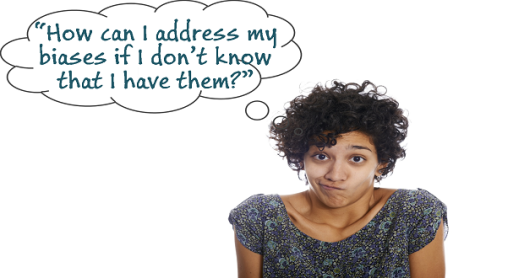The media is a powerful platform that may create a certain discourse in society, possibly unknowingly to this society, and even those who disseminate the information. Addressing Unconscious Bias is an article created by McKinsey and Company, and actress Geena Davis in an attempt to emphasise, research and explain a certain imbalance, or bias, within children’s media towards gender representation, and the concern of whether ‘life will imitate art’ (Davis 2015).
Unconscious bias affects most aspects of our lives (Chu 2014), particularly reaching us through the everyday compulsive use of media. To understand unconscious bias better, it steers us towards people who hold similar backgrounds and cultures, beliefs, value and attitudes to us intuitively or involuntarily (Chu 2014).
Geena Davis writes this piece from her own personal experiences and perspective involving her children’s television and film viewing habits, not as an actress addressing an issue, but as the founder and chair of the Institute on Gender in Media undertaking an extensive research project to capture the attention of the media industry, their content creators and viewers themselves (Davis 2015). This gives her a certain credibility to speak about this issue, and additionally she gains more authority in her plight as a mother speaking out to other mothers and people who have unconsciously become a victim to their own bias.
It is highlighted in this article that stereotypes of women are perpetuated in film and television subconsciously as this is considered the societal norm of how women should be and are represented. The global study they participated in found that 17 percent was a common percentage in many aspects of society in regards to women involvement in such things as characters in crowd scenes in film, tenured professors and law partners, posing the question of whether this 17 percent is becoming considered as the norm and conditioned ratio to expect (Davis 2015).
The use of statistics in this article validates the author’s findings and argument about unconscious bias. Whilst this article only points out a select few pieces of evidence from their research, that are most relevant to the argument, it provides a link to the complete research report, Gender Bias without Borders, which details all the findings on the issue.
The author’s position in this argument is clear; unconscious bias is “planted and reinforced by the media from a very young age” (Davis 2015), and this is affecting the characterisation of gender, especially how women are represented, or underrepresented, in television and film, as well as outside of the fictional world in the workforce.
The value that this article expresses is conscious equality, in an attempt to defer the dormant bias in society that has become difficult to overcome. It encourages corporations, media industries and society itself to recognise the existence of unconscious bias in all aspects of life, and address the issue through education, precisely why this article was written originally.
References:
Chu, T 2014, ‘How Unconscious Bias Holds us Back’, The Guardian, 1 May, viewed 1 April 2015, <http://www.theguardian.com/women-in-leadership/2014/may/01/unconscious-bias-women-holding-back-work>.
Davis, G 2015, ‘Addressing Unconscious Bias’, McKinsey & Company, February 2015, viewed 1 April 2015, <http://www.mckinsey.com/insights/organization/addressing_unconscious_bias>.
Winter, MF 2014, How can I address my biases if I don’t know that I have them?, image, The Inclusion Solution, viewed 2 April 2015, <http://www.theinclusionsolution.me/unpacking-our-biases-unconscious-and-conscious-part-5-5-ways-to-uncover-your-unconscious-biases/>.

This article is very relevant within society today. I remember when I first heard of Geena Davis addressing this issue of unconscious bias towards gender representation in children’s media. At first, I was surprised that this issue was one that Geena felt needed to be addressed in children’s media. But, upon reading this article and reflecting more on the content of children’s media today, I believe that this issue is one that definitely raises some concern. It is quite distressing to think that the media that we were exposed to during our childhood may have impacted our views of issues such as gender representation.
I think that you have analysed this article well and you have highlighted the important aspects of the text. You have also identified the audience as corporations, media industries and society in general, which I agree with as the article is stressing the need for these groups to recognise the prevalence of unconscious bias. Great work!
Hey, thanks for your comment. Before finding this article, I actually didn’t know that Geena Davis had anything to do with this issue. I feel we always see actors and actresses promote all these charities, but never see any complete evidence of their input. With Davis, I found it so great that she was the chairman/founder of this instate, that has actually undergone research into what’s driving this issue and how we can amend it.
Some issues are so second nature to us that we don’t even realise they are happening around us daily, so I really found an interest in this topic, and I’d love to go into more depth in the future! 🙂